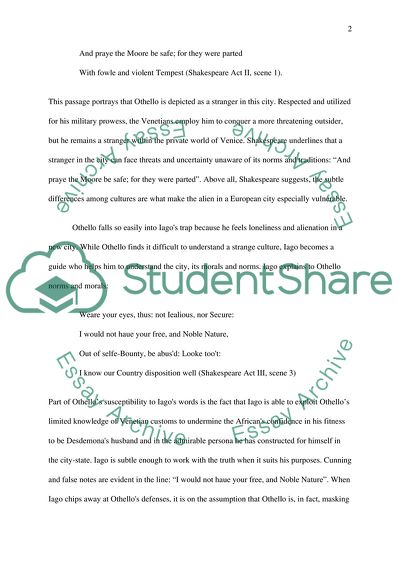Cite this document
(Othello by Shakespeare Book Report/Review Example | Topics and Well Written Essays - 1500 words, n.d.)
Othello by Shakespeare Book Report/Review Example | Topics and Well Written Essays - 1500 words. https://studentshare.org/literature/1711094-othello
Othello by Shakespeare Book Report/Review Example | Topics and Well Written Essays - 1500 words. https://studentshare.org/literature/1711094-othello
(Othello by Shakespeare Book Report/Review Example | Topics and Well Written Essays - 1500 Words)
Othello by Shakespeare Book Report/Review Example | Topics and Well Written Essays - 1500 Words. https://studentshare.org/literature/1711094-othello.
Othello by Shakespeare Book Report/Review Example | Topics and Well Written Essays - 1500 Words. https://studentshare.org/literature/1711094-othello.
“Othello by Shakespeare Book Report/Review Example | Topics and Well Written Essays - 1500 Words”. https://studentshare.org/literature/1711094-othello.


